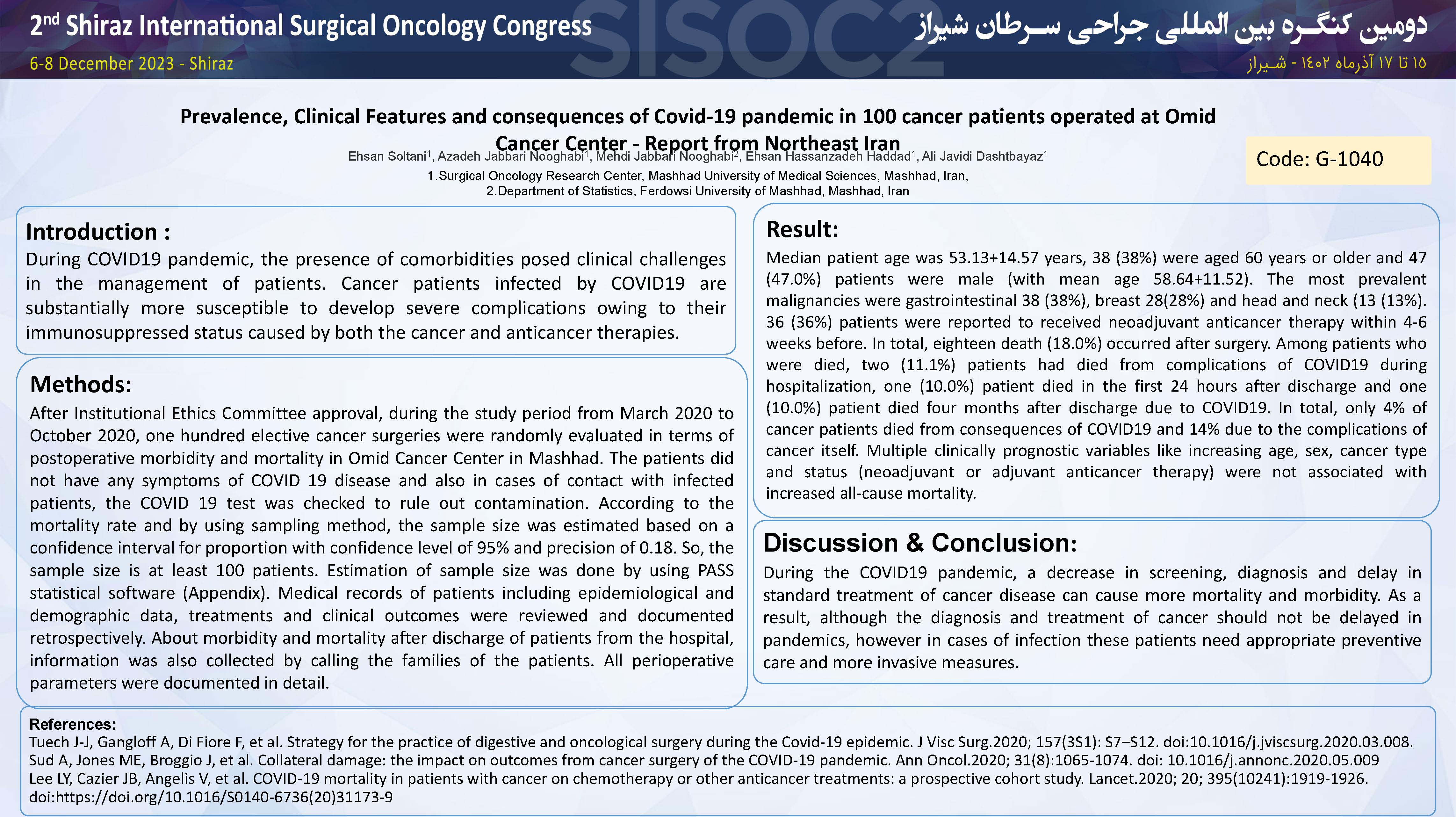شیوع، ویژگیهای بالینی و پیامدهای همهگیری کووید-19 در 100 بیمار سرطانی تحت عمل مرکز سرطان امید - گزارش شمال شرق ایران
کد: G-1040
نویسندگان: Azadeh Jabbari Nooghabi © ℗, Ehsan Soltani, Mehdi Jabbari Nooghabi, Ehsan Hassanzadeh Haddad, Ali Javidi Dashtbayaz
زمان بندی: جمعه ۱۴۰۲/۰۹/۱۷ ۱۰:۳۰ بر روی یونیت Panel B
دانلود: دانلود پوستر
خلاصه مقاله:
خلاصه مقاله
Abstract Introduction: During COVID19 pandemic, the presence of comorbidities posed clinical challenges in the management of patients. Cancer patients infected by COVID19 are substantially more susceptible to develop severe complications owing to their immunosuppressed status caused by both the cancer and anticancer therapies. Method: In this retrospective study from March to October 2020, 100 cancer patients were evaluated in terms of postoperative morbidity and mortality in Omid Cancer Center in Mashhad. Results: Median patient age was 53.13+14.57 years, 38 (38%) were aged 60 years or older and 47 (47.0%) patients were male (with mean age 58.64+11.52). The most prevalent malignancies were gastrointestinal 38 (38%), breast 28(28%) and head and neck (13 (13%). 36 (36%) patients were reported to received neoadjuvant anticancer therapy within 4-6 weeks before. In total, eighteen death (18.0%) occurred after surgery. Among patients who were died, two (11.1%) patients had died from complications of COVID19 during hospitalization, one (10.0%) patient died in the first 24 hours after discharge and one (10.0%) patient died four months after discharge due to COVID19. In total, only 4% of cancer patients died from consequences of COVID19 and 14% due to the complications of cancer itself. In total multiple clinically prognostic variables like increasing age, sex, cancer type and status (neoadjuvant or adjuvant anticancer therapy) were not associated with increased all-cause mortality. Conclusion: During the COVID19 pandemic, a decrease in screening, diagnosis and delay in standard treatment of cancer disease can cause more mortality and morbidity. As a result, although the diagnosis and treatment of cancer should not be delayed in pandemics, however in cases of infection these patients need appropriate preventive care and more invasive measures.
کلمات کلیدی
Cancer - Pandemic - Covid 19
دیدگاه ها (0)
ارسال یک دیدگاه
ارسال دیدگاه توسط مدیریت بسته شده است.
